Understanding Foreclosure In Augusta Georgia: What You Need To Know
Understanding foreclosure laws in Georgia is essential for anyone looking to buy a home through a foreclosure process. It’s important to know the different stages of foreclosure and what rights you have as a buyer throughout the process.
The first step in selling a house in foreclosure in Georgia is to determine if the home is eligible for sale. This involves checking with local courts and lenders to ensure that all paperwork has been properly filed.
Next, potential buyers should research the property history to understand any issues that could affect their purchase. Additionally, it’s important to understand the bidding process used during auctions and how title transfers occur after an auction closes.
Finally, buyers should be aware of any potential liabilities or costs associated with buying a foreclosed property and make sure they have adequate funds available for closing costs and other fees. Knowing these various aspects of foreclosure in Georgia can help make the purchase process smoother and more successful.
Strategies To Avoid Foreclosure In Georgia
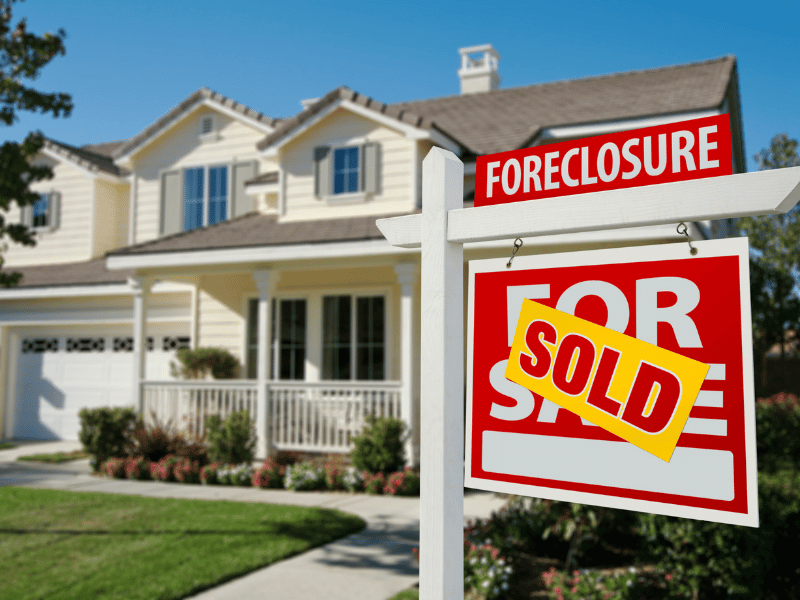
Facing foreclosure in Georgia can be a daunting process, but there are strategies that homeowners can use to avoid the foreclosure process altogether. One of the most important things to do is to stay informed and up-to-date on all relevant laws and regulations in the state.
Knowing what options are available can help homeowners make an informed decision about how to best manage their foreclosure situation. Additionally, it’s important for homeowners to know their rights and understand any potential consequences associated with going through with a foreclosure.
Homeowners should also reach out to their lender or servicer as soon as they realize they may be at risk of foreclosure; lenders may have programs in place that can provide relief from mortgage payments or even modify the loan terms if needed. Borrowers should also consider speaking with a housing counselor who can help them understand their situation and create a plan for avoiding foreclosure.
Finally, homeowners should be aware of any potential legal issues that could arise from selling a house in foreclosure and take steps to protect themselves during this process. Taking proactive steps now can save borrowers time, money, and stress down the road.
Can I Sell My Home In Preforeclosure?
It is possible to sell your home in preforeclosure if you live in Georgia. If you are facing foreclosure, there are several steps you need to take in order to complete the sale of your home.
First, you should contact a real estate agent who specializes in foreclosures and short sales. They will be able to provide you with advice and guidance on how to best navigate the process.
Next, you’ll need to review the terms of your loan and determine if a short sale is an option for you. This involves negotiating with your lender to accept less money than is owed on the loan.
Depending on the lender’s policies, they may approve or deny a short sale request. Lastly, it’s important to stay up-to-date with the foreclosure laws in Georgia.
These laws can vary from county to county, so it’s essential that you understand what type of timeline is expected when selling a home in preforeclosure. Knowing all of these factors ahead of time can help make sure that selling your home goes as smoothly as possible.
How To Delay A Foreclosure Auction In Georgia

If you’re selling a house in foreclosure in Georgia, it’s important to understand the process and the steps involved. Knowing how to delay a foreclosure auction in Georgia is key to securing the best outcome for all parties involved.
Delaying a foreclosure auction can be done by filing bankruptcy or using other court-approved options. The judicial process of filing bankruptcy involves filing an appropriate petition with the court and following all applicable laws.
You may also be able to reach an agreement with the lender on a repayment plan that will allow you to stay in your home until you can find alternate financing. In addition, certain state and local governments offer programs that provide assistance with mortgage payments, taxes, or other related expenses associated with owning a home.
It’s important to understand all of your options when it comes to delaying a foreclosure auction in Georgia and staying informed is essential to making sure you make the best decisions for your future.
Selling Your Home During A Foreclosure Sale In Georgia
Selling your home during a foreclosure sale in Georgia can be a daunting prospect, but with the right information and preparation, you can be successful. Knowing the laws and regulations involved in the process is essential to ensure that you successfully navigate the sale of your home.
Understanding the rules associated with a foreclosure sale will help you find qualified buyers and get the best price for your home. Additionally, it’s important to keep track of all documents relating to the sale, including any notices of default or foreclosure proceedings.
Being organized and having all documentation ready for review by potential buyers will help expedite and simplify the process. Lastly, it’s essential that you work closely with experienced professionals who have knowledge of foreclosure sales in Georgia so that you can be sure to make an informed decision about selling your home during this time.
The Advantages Of Working With A Foreclosure Lawyer
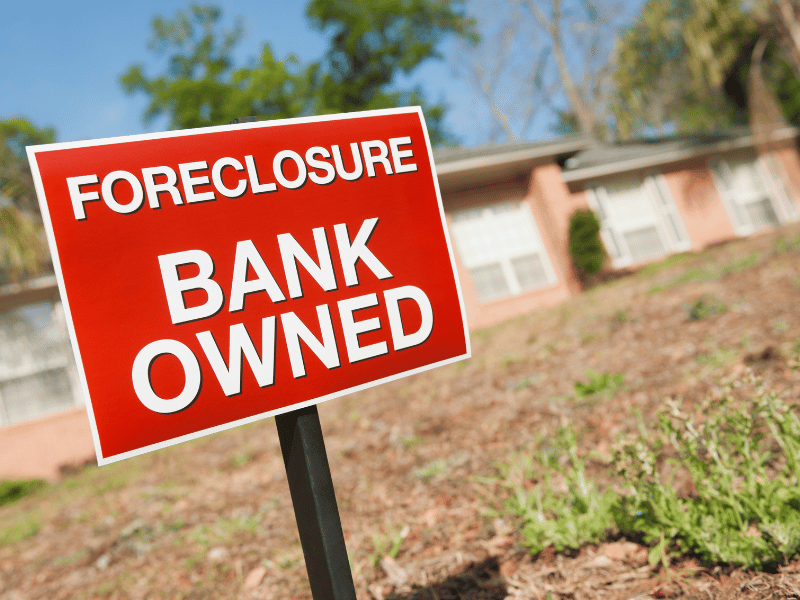
When selling a house in foreclosure in Georgia, it’s important to know the advantages of working with a foreclosure lawyer. A foreclosure lawyer can provide sound legal advice and representation, ensuring that all paperwork is filed correctly and deadlines are met.
They are knowledgeable about the laws and regulations governing foreclosures in the state, so they can help limit potential risks associated with selling a home in foreclosure. Moreover, they can help ensure that all parties involved have a fair agreement and that the process is done fairly and ethically.
Additionally, working with an experienced foreclosure lawyer means having access to someone who can negotiate on your behalf to get you the best possible outcome for your property sale. A professional attorney specializing in foreclosures can also assist with handling creditor claims and defend against any potential legal issues related to the sale of the property.
How To Negotiate The Short Sale Process For Your Home In Georgia
When selling a home in foreclosure in Georgia, the short sale process is an important one to consider. Before beginning negotiations, homeowners should do their research on the current market conditions in their area and understand that the lender may need to approve any deal before it can be finalized.
Additionally, it’s important to know the limits of what you are willing to negotiate and have realistic expectations for the price. When negotiating with a lender, understanding the difference between a principal reduction and a credit line can help you get closer to your desired outcome.
It’s also helpful to work with an experienced real estate attorney who can help guide you through this complex process. By taking these steps, homeowners can be better prepared when it comes time to negotiate their short sale and ensure they end up with the best possible outcome.
Key Considerations When Selling A House In Foreclosure Georgia
When selling a house in foreclosure in Georgia, there are several important considerations to keep in mind. First and foremost, it is essential to understand the legalities that accompany such a sale.
Understanding the process and regulations is key to ensuring a successful transaction. Additionally, being aware of the responsibilities of both parties involved can help ensure everyone is on the same page throughout the entire process.
It is also important to be aware of any potential liens or encumbrances that may be associated with the property being sold, as these can significantly affect the outcome of the sale. Financing options should also be explored when selling a house in foreclosure in Georgia, as this can play an important role in determining whether or not a sale will ultimately take place.
Finally, it is beneficial to familiarize oneself with local market trends and prices for similar properties in order to get an idea of what price range one might expect for a successful sale.
Understanding The Different Types Of Foreclosures Available In Georgia
Selling a house in foreclosure in Georgia can be a complicated process depending on the type of foreclosure. It is important to understand the different types available and what each entails before deciding how to proceed.
The state of Georgia offers two main types of foreclosures: judicial and non-judicial. Judicial foreclosures require a court order, while non-judicial are handled outside of court.
When it comes to judicial foreclosure, the lender must file a complaint with the court and serve the homeowner with formal notice of a lawsuit. The borrower then has an opportunity to respond by raising legal defenses or trying to negotiate an agreement with the lender.
Non-judicial foreclosures do not involve any court proceedings, and lenders may proceed directly with selling the property if they have followed all other necessary steps, such as sending notices and giving public notice. In this case, the borrower does not have any right to contest or defend against the foreclosure process.
Understanding these different types of foreclosures is key when considering selling a house in foreclosure in Georgia, as it will provide insight into what rights you have as a borrower and how best to navigate through each type of foreclosure process.
Pros And Cons Of Selling A House Before It Goes Into Foreclosure
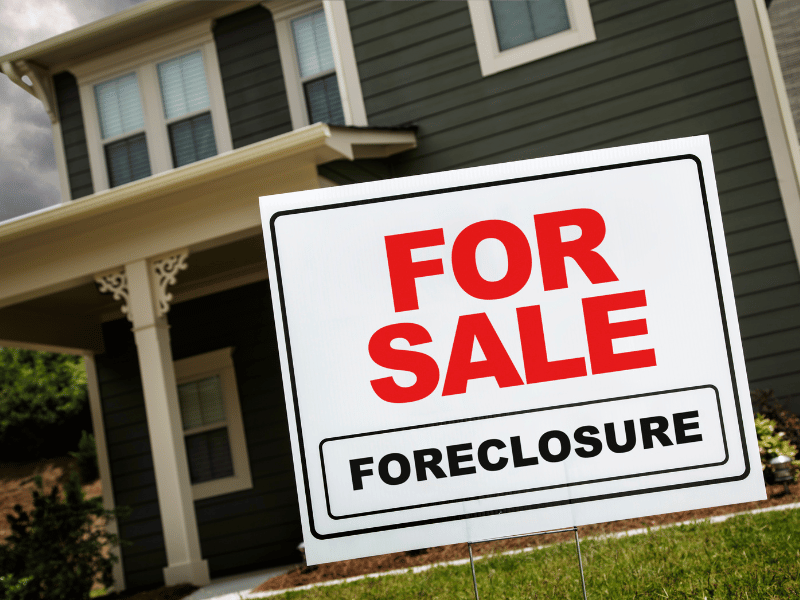
When it comes to selling a house in foreclosure in Georgia, there are both pros and cons that must be weighed. One of the main advantages is that you can avoid further damage to your credit score.
By selling before the foreclosure process is complete, you can still get some money from the sale. Additionally, if you proceed with a short sale, you may be able to negotiate some of your debt away and reduce the amount owed.
On the other hand, there are also drawbacks to selling a house before foreclosure. You may not receive as much money for your house due to its condition or lack of buyers, and this will result in a loss of equity.
Additionally, if you do not get all of the paperwork done correctly, it could result in extra fees or even legal action against you by the lender. Ultimately, it’s important to consider both sides before deciding whether selling a house before foreclosure is right for you.
Navigating The Right Timeframe For Selling Your Home During The Foreclosure Process
Navigating the right timeframe for selling a home during the foreclosure process is an important step in selling a house in foreclosure in Georgia. It requires careful consideration of all legal requirements that must be followed, such as when to file paperwork, how long it may take to complete the sale, and who should be involved in the transaction.
It is essential to understand the processes behind foreclosure proceedings in order to make sure that everything runs smoothly and that all parties are fairly represented. Knowing when to list your home for sale can make a big difference, as it will determine how much time you have to find a buyer and negotiate contracts.
Additionally, it is important to consider whether or not you should hire an attorney or real estate agent throughout the process. With these details firmly established, finding the right timeline for selling your home during foreclosure proceedings can be made easier and less stressful.
Smart Tips To Maximize Your Profit When Selling A House During Foreclosure In Georgia

When selling a home in foreclosure in Georgia, there are some smart tips to keep in mind to maximize your bottom line. First, be sure to do your research on the local market and consider the current economy when pricing your home.
You should also make sure you’re familiar with the foreclosure process in Georgia and any laws or regulations that apply. Additionally, it’s important to explore all of your options when it comes to selling your home during foreclosure.
This could include hiring an experienced real estate agent, advertising through online channels, or working with professional investors. Finally, don’t forget to factor in costs associated with closing, such as commissions and legal fees.
With these tips in mind, you can ensure that you get the best return on your investment when selling a house during foreclosure in Georgia.
Important Questions To Ask Yourself Before Committing To Selling A House In Foreclosure, Georgia
Before committing to selling a house in foreclosure in Georgia, it’s important to ask yourself some key questions.
How long will the process take? What fees and costs are associated with the sale? What paperwork is required to make the sale official? Are there any potential legal issues that could arise during the process? Can you get a better deal by negotiating with your bank or lender? How much money will you receive from the sale, and how much of it can be used toward another purchase? Will you have enough time to find a new place to live before the foreclosure sale takes place? Are there any special provisions for homeowners in Georgia who are trying to sell their homes during foreclosure? Answering these questions can help ensure a smooth transition when selling a house in foreclosure in Georgia.
The Benefits Of Investing In A Property Going Through Foreclosure In Georgia

Investing in a property going through foreclosure can be an attractive way to purchase a home in Georgia. Foreclosure is the legal process by which a lender reclaims a mortgaged property when the borrower is unable to make payments and involves selling the property at auction.
The benefits of buying a home through foreclosure include access to discounted prices, as well as the potential for increased equity over time. Additionally, buyers are able to purchase properties without competing offers from other buyers.
This makes it easier to acquire valuable real estate at below-market values. When considering purchasing a foreclosed home in Georgia, prospective buyers should do their research and take into account the cost of repairs and renovations that may be necessary before moving in.
In addition, it is important to familiarize yourself with local regulations regarding foreclosures and any associated fees or taxes that may need to be paid upon closing. Understanding these factors can help ensure that you have a positive experience when investing in a foreclosure property in Georgia.
Finding A Reputable Real Estate Agent For The Sale Of Your Home During A Foreclosure In Ga
When looking for a real estate agent to help you sell your home during foreclosure in Georgia, it’s important to do your research and make sure they are experienced in the process. Reputable agents should be familiar with the laws and regulations surrounding foreclosures in GA and be able to guide you through the process as quickly and smoothly as possible.
It is also recommended to look for an agent who has knowledge of the local market, including recent sales trends, so they can provide you with an accurate assessment of what price your property could fetch. When interviewing potential agents, ask questions about their experience in selling homes during foreclosure, such as how long it typically takes them to close a sale or whether they have worked with any banks or lenders during previous foreclosure sales.
Finally, make sure that you are comfortable working with them and that they have clear communication skills before making your final decision.
Common Mistakes To Avoid When Selling A Property Going Through The Foreclosure Process In Ga
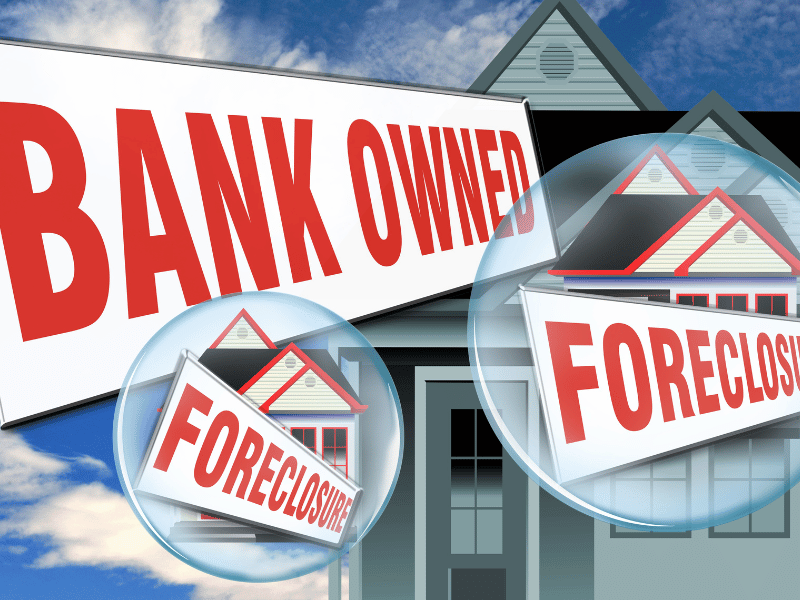
When selling a property going through the foreclosure process in GA, it is important to understand all the legal repercussions that come along with it. Common mistakes people make when selling a house in foreclosure include not understanding what their rights are, failing to consult with an experienced attorney, not researching local laws and regulations, and not taking into account the tax implications associated with selling a home in foreclosure.
Additionally, some sellers may be tempted to accept less money than what they are owed on the property in order to avoid the hassle of dealing with the foreclosure process. However, while this may offer short-term relief, it can cause long-term financial ramifications for both parties involved.
Lastly, sellers should ensure they are familiar with any deadlines set by lenders or courts before signing any documents related to the sale of their property. Ignoring these deadlines can lead to further delays and complications during the closing process.
Determining If It’s Financially Wise To Sell Or Keep Your Home While Facing Foreclosure
It can be hard to decide if it’s financially wise to sell or keep your home when facing foreclosure in Georgia. Before making any decisions, it’s important to understand the legal and financial implications of both options.
When selling a home in foreclosure, you need to be aware of the timeline involved. Typically, the lender will file a notice of foreclosure on the property and will take possession after a certain amount of time, meaning that you may not have much control over when your home is sold.
Additionally, you should calculate how much money you may end up owing after the sale. Depending on your loan type and state laws, you could owe more than what is owed on the mortgage because of legal fees associated with foreclosure proceedings.
If you choose to keep your home during foreclosure proceedings, there are still costs associated, such as attorney and court fees, that can add up quickly. Additionally, you need to be aware that if your case goes all the way through to eviction proceedings, it could negatively affect your credit score and make it harder for you to get approved for future mortgages or other loans.
These are all important factors to consider when deciding whether or not it’s financially wise to sell or keep your home while facing foreclosure in Georgia.
Exploring Legal Avenues & Resources For Protecting Yourself From Unlawful Tactics Used By Creditors During The Pre-foreclosure Period.
When selling a house in foreclosure in Georgia, there are certain legal avenues and resources you can use to protect yourself from unlawful tactics used by creditors during the pre-foreclosure period. Knowing your rights as a homeowner is key to preventing creditor intimidation or evasion of any applicable laws.
Firstly, it’s important to understand the timeline for a foreclosure in Georgia. This helps you stay aware of how much time you have before losing ownership of your home.
Secondly, it’s recommended to get familiar with state laws that protect homeowners facing foreclosure. For example, the Homeowners’ Bill of Rights Act prohibits some of the most common unfair practices by creditors, such as dual tracking and excessive fees.
Additionally, it may be worth considering speaking with an experienced attorney who specializes in foreclosures before engaging with creditors or potential buyers so you can avoid getting taken advantage of. Finally, seeking out free counseling services from HUD-approved housing counselors can be beneficial for homeowners looking for protection against foreclosure scams or wrongful evictions.
Taking advantage of these legal avenues and resources will help ensure that your rights are protected during the pre-foreclosure period when selling a house in Georgia.
What Are The Legal Hours Of A Foreclosure Sale In Georgia?
In Georgia, foreclosure sales must take place between the hours of 10 AM and 4 PM local time. The sale must be conducted outside of a courthouse and in a public location, such as the steps of the courthouse or another public building.
If the property is located in a rural area, then the sale can be held at any public place that is reasonably convenient for bidders. It’s important to note that while auctions typically begin at 10 AM, there is no requirement that they conclude by 4 PM.
On rare occasions, foreclosure sales may extend beyond this time frame if there are interested bidders present.
How long after a foreclosure auction must homeowner vacate property in Georgia?
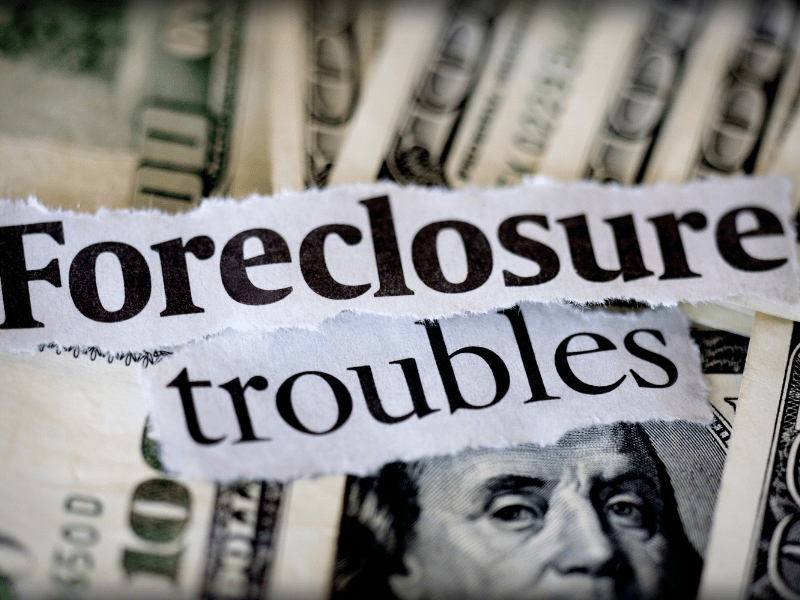
In a judicial foreclosure, the homeowner must vacate the house within 10 days of receiving an eviction notice from the court. In a non-judicial foreclosure, the time frame for moving out depends on when and how the Notice of Sale was delivered to the homeowner.
Generally, between 30 and 60 days after receipt of the Notice of Sale, homeowners must either move out or redeem their mortgage loan. It is important to understand all aspects of foreclosure laws in Georgia to ensure that you comply with them and can protect your rights as a homeowner during this process.
How Long Is The Foreclosure Process In Georgia?
The foreclosure process in Georgia can last anywhere from a few weeks to several months. Generally, it begins when the mortgage lender files a lawsuit against the homeowner who has defaulted on their loan.
The court will then issue an order of sale, which must be published four times over three consecutive weeks in a local newspaper. This allows any interested parties to enter bids on the property.
After the initial bidding period ends, the court typically holds a hearing where the winning bidder may purchase the property. Once that is complete, the deed is transferred to the new owner, and they are able to take possession of the house.
While each case is unique and timelines can vary widely, most foreclosures in Georgia end within two to three months after legal proceedings begin.
How Does Buying A Foreclosed Home Work In Georgia?
Buying a foreclosed home in Georgia can be an excellent way to get a great deal on a property, but it’s important to know the process and what you need to do. The first step is to research properties that are in foreclosure.
You’ll want to find out who owns the property and how far into the foreclosure process they are. Once you’ve gathered this information, you can contact the owner or their lender directly to determine if they’re willing to sell.
If so, you’ll then need to review the full list of documents associated with the foreclosure and negotiate a purchase price. From there, you’ll need to make sure all necessary paperwork is completed correctly and that any inspections are performed in accordance with Georgia law before closing on the sale.
Finally, before closing on the property, it’s important to make sure that all outstanding liens have been released or satisfied. By following this process and understanding what’s involved when buying a foreclosed home in Georgia, you can get an amazing deal on your next home!
Selling A House In Foreclosure In Georgia
This information applies to Augusta, Greensboro, Monroe, Columbia, Lexington, and other cities in the state.
Get An Offer Today, Sell In A Matter Of Days…
| FORECLOSING | EFFECTS OF FORECLOSURE | FORECLOSURE DEFENSE | LOAN FROM A BANK | PRIVATE LENDERS | MORTGAGE LENDERS |
| HOME LOAN | MORTGAGE LOANS | REAL ESTATE BROKER | REALTORS | BROKER | CASH |
| DEBTOR | REAL ESTATE MARKET | SHORT SELL | HOMEOWNER’S | FSBO | FOR SALE BY OWNER |
| HOME AFFORDABLE MODIFICATION PROGRAM | HAMP | MAKING HOME AFFORDABLE PROGRAM | HOME AFFORDABLE FORECLOSURE ALTERNATIVES | ATLANTA | ATLANTA, GEORGIA |
| LOAN MODIFICATION | LOSS MITIGATION | JUDGMENT | PHONE | TELEPHONE | SUING |
| LITIGATION | FANNIE MAE | FANNIE MAE FOUNDATION | PROMISSORY NOTE | DEFICIENCY JUDGMENT | THE U.S. DEPARTMENT OF HOUSING AND URBAN DEVELOPMENT |
| THE DEPARTMENT OF HOUSING AND URBAN DEVELOPMENT | PROPERTY TAX | EVICTED | DEED-IN-LIEU | DEED IN LIEU OF FORECLOSURE | METRO ATLANTA |
| AMERICA | THE UNITED STATES | MORTGAGE SERVICERS | MORTGAGE SERVICING | TENANTS | INTEREST RATE |
| DISCOUNT RATE | INCOME | HOMELIGHT | FAIR MARKET VALUE | CREDIT HISTORY | |
| CREDIT REPORT | CREDIT RECORD | CONSUMER | CHAPTER 13 BANKRUPTCY | AUTOMATIC STAY | TRIAL |
| TOOL | TELEPHONE NUMBER | REFINANCING | LEASING | HOTLINE | FEDERAL GOVERNMENT |
| COUNTY COURTHOUSE | COVID | COVID-19 | THE CORONAVIRUS | BREACH | ASSET |
| ADVERTISEMENT | BANKRUPTCY COURT | SHERIFF | CERTIFIED MAIL | REGISTERED MAIL | REAL ESTATE OWNED |
| PROBATE | PANDEMIC | NOTHING | MARKETING | JUDGE | |
| GRACE PERIOD | ESCROW AGENT | ESCROW | CONTRACTUAL RIGHTS | CHAPTER 7 BANKRUPTCY | FAIR MARKET VALUE |
| YOUR MORTGAGE PAYMENTS | STOP THE FORECLOSURE | AFTER THE FORECLOSURE | ON YOUR MORTGAGE | PHONETHIS FIELD IS FOR | ADDRESS AND TELEPHONE NUMBER |
| NAME ADDRESS AND TELEPHONE | AND TELEPHONE NUMBER OF | AFTER THE FORECLOSURE SALE |

